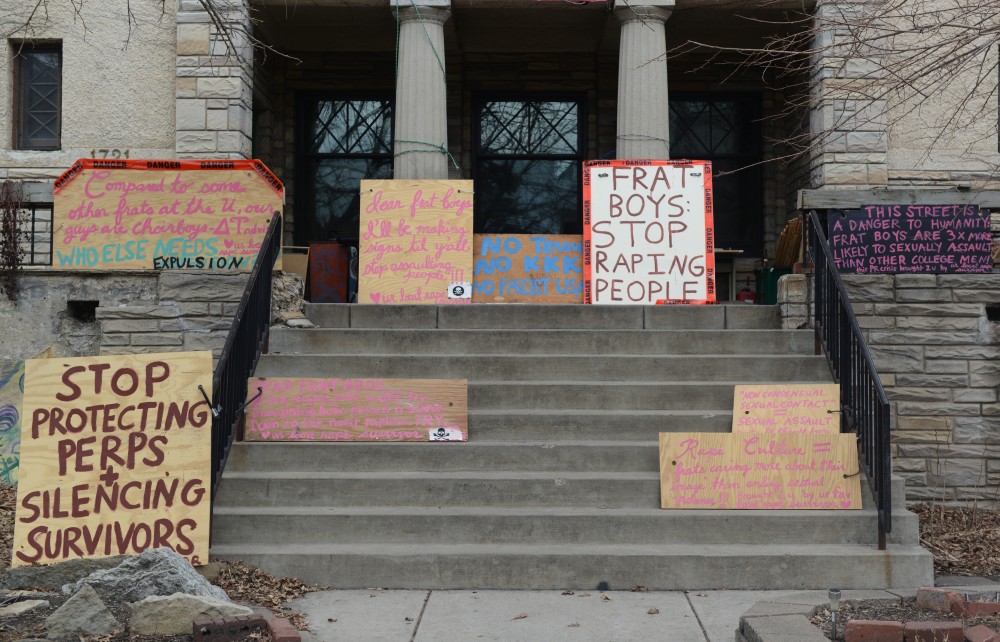In the final installment of the Minnesota Daily’s recent in-depth feature on sexual assault and greek life, the paper quoted Interfraternity Council president Simon Beck saying the IFC isn’t “equipped to handle” the fallout from assault allegations when they crop up on campus.
He continued by saying issues with the University of Minnesota greek community are the result of a ‘bad apple’ rather than a reflection of greek life as a whole.
While I agree that the IFC isn’t adequately prepared to handle the magnitude and persistence of issues surrounding sexual assault on campus, I vehemently disagree with Beck’s assertion that these assaults can, by-and-large, be attributed to a few “bad apples” rather than an entire culture that perpetuates rape and assault.
Signs, posters and sidewalk graffiti calling frat boys to “stop raping” and citing sexual assault statistics are currently peppered around campus, perhaps most notably in the front yard of the Students’ Co-op, which is on fraternity row. Unsurprisingly, the fraternity houses aren’t happy about this. Simon Beck said that many fraternity members are concerned about the “overgeneralizing and accusatory nature” of the messages emblazoned on the signs.
“Rape culture is the fraternities being more concerned with their image than with the fact that part of their membership is committing acts of sexual violence,” cooperative co-president Mallory Mitchell told the Minnesota Daily last week —and I have to agree.
I’ve written in my column before about how fraternities will need to work to de-normalize sexual assault and rape in order to shed their bad reputations, but in light of Simon Beck’s comments, I feel a need to reiterate my message more strongly.
To say that sexual assault on campus should be attributed to the work of a few rotten individuals is to be ignorant to the reality of the situation.
It’s important to address that rape culture is prevalent throughout the United States, but it’s even more pervasive on college campuses. According to Rape, Abuse and Incest National Network (RAINN), 23.1 percent of undergraduate women are raped or sexually assaulted. Men in frats are three times more likely to rape, according to at least three studies in the last ten years. Fraternities, perhaps simply as a result of containing exclusively college-aged men, tend to promote drinking, partying, sex and hyper-masculinity. As a result, they’re a breeding ground for assaults to take place.
With all that in mind, fraternities need to do a lot in order to prevent sexual assault. The University of Minnesota greek community participates in two yearly anti-assault events — is it enough?
So much is stacked toward creating a toxic environment that fraternities will have to acknowledge the prevalence of rape culture and make preventing sexual assault a top priority to result in any real changes. If not, are they safe to have on campus?








